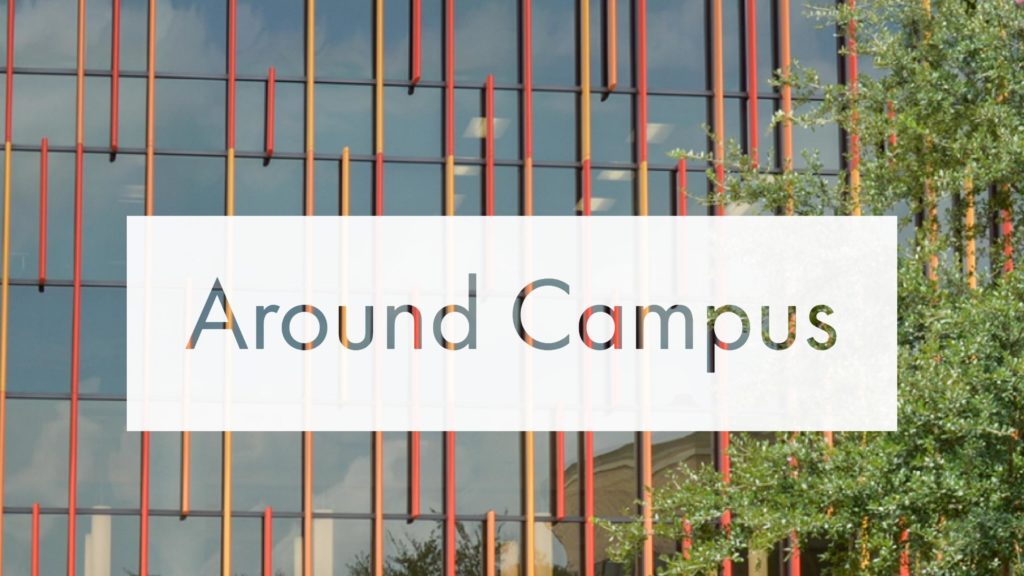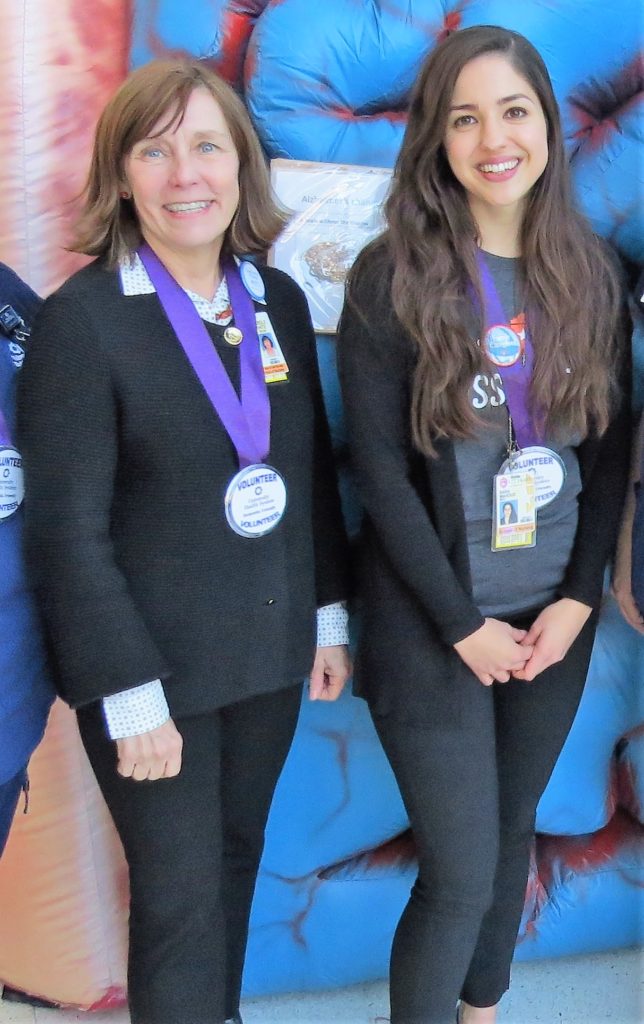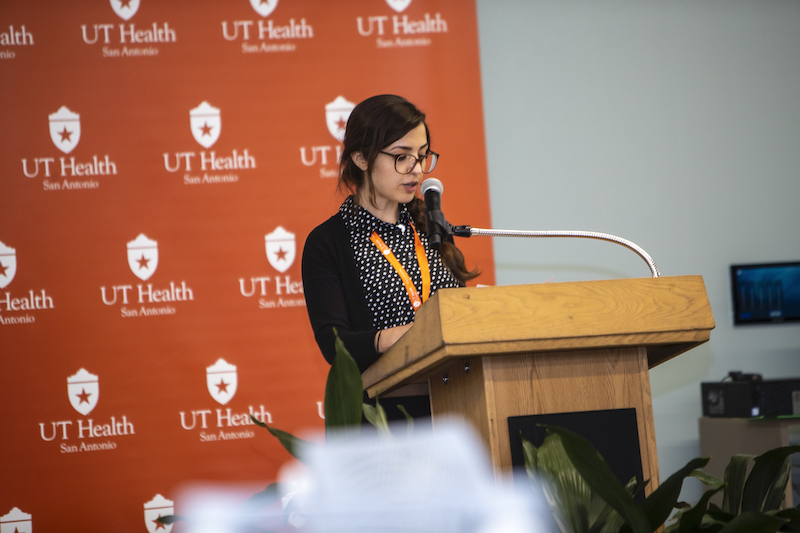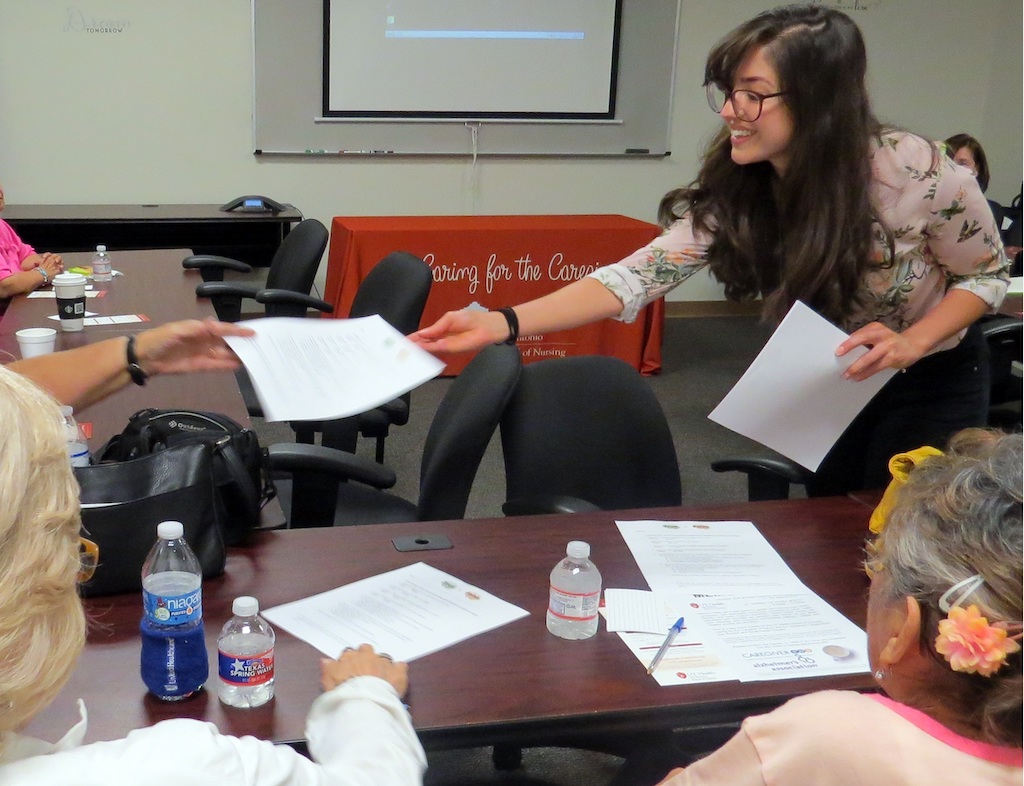Sara Masoud Receives Outstanding Student Award For Her Work With Community Engagement


Dr. Carole White and Sara Masoud
First year Translational Science doctoral student Sara Masoud was awarded the Outstanding Student Award from the UT Health San Antonio Institute for Integration of Medicine & Science.
The award is part of the IIMS Community Engagement Hero Awards which is an awards program which recognizes outstanding individuals who have worked as part of a community and research partnership for the improved health and well-being of South Texas communities.
The Outstanding Student Award recognizes a student who has demonstrated exceptional commitment and follow-through as part of a community service learning project or internship that has created a tangible benefit for a community and academic partnership. Masoud was acknowledged with this award for her collaborative efforts with partnering community organizations, institutions, and families throughout South Texas.
Masoud is passionate about employing authentic and meaningful community engagement to produce research that is relevant and translatable into practice. Her research is focused on family caregivers and persons living with dementia. She has been working with Dr. Carole White on a project funded by the Patient Centered Outcomes Institute (PCORI) to identify priorities for dementia care research through collaboration with a diverse group of stakeholders including family caregivers, persons living with dementia, and health and social care professionals.

Masoud serves as a coordinator of a Memory Café and lead of the Texas Memory Café Network. She hopes that the infrastructure of the growing Texas Memory Café Network will support other coordinators to provide high-quality and responsive social support for persons living with dementia and their families. She is currently leading a project funded by an IIMS Community Engagement Small Projects Grants to evaluate the impact of Memory Cafés on experiences of social connectedness of persons living with dementia and family care partners. This project is timely and responsive to the high risk of social isolation and loneliness experienced by vulnerable older adults following COVID-19 restrictions on in-person gatherings.
Masoud hopes that her work will encourage and support other researchers to include diverse stakeholder groups in their projects, especially individuals living with dementia and family caregivers.

“Our research is important because it advocates for the inclusion of persons living with dementia and family caregivers to be involved not only as participants but as collaborators in research. It is particularly important that our work involves adapting the research process to center around including the perspectives of persons living with dementia and family caregivers,” she said. “This practice, while important, rewarding, and greatly beneficial for representation of vulnerable communities in research, can be challenging and time-consuming.”
Selected awardees receive a $500 domestic travel award to be used for a future meeting or conference.
